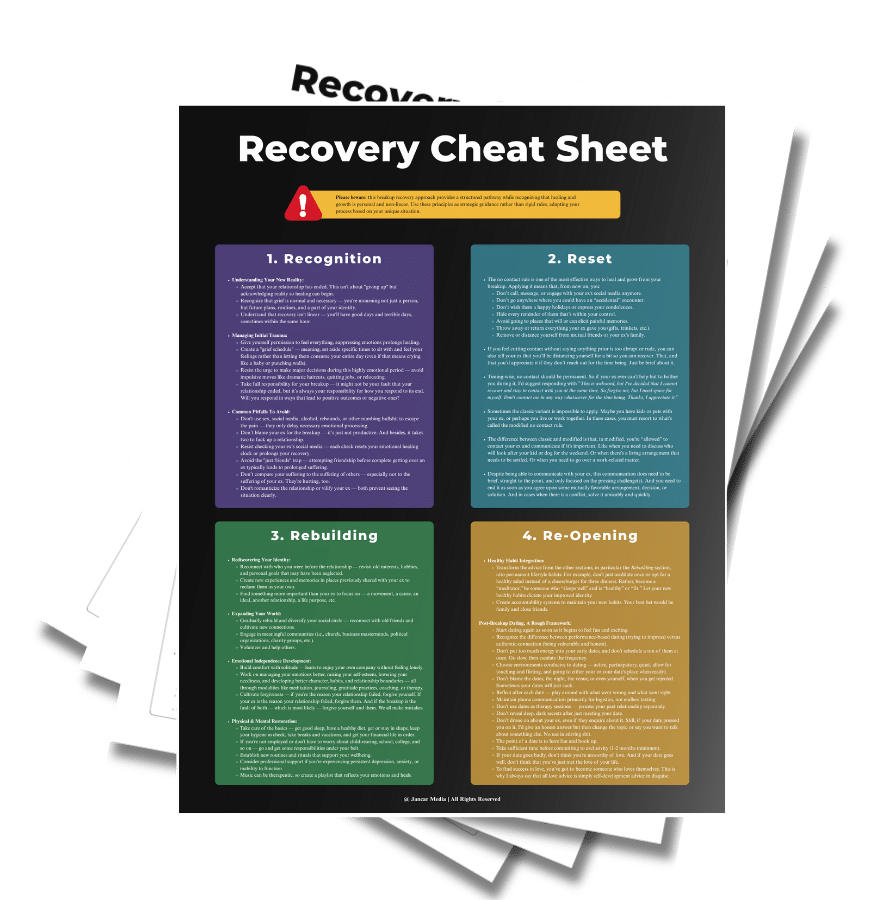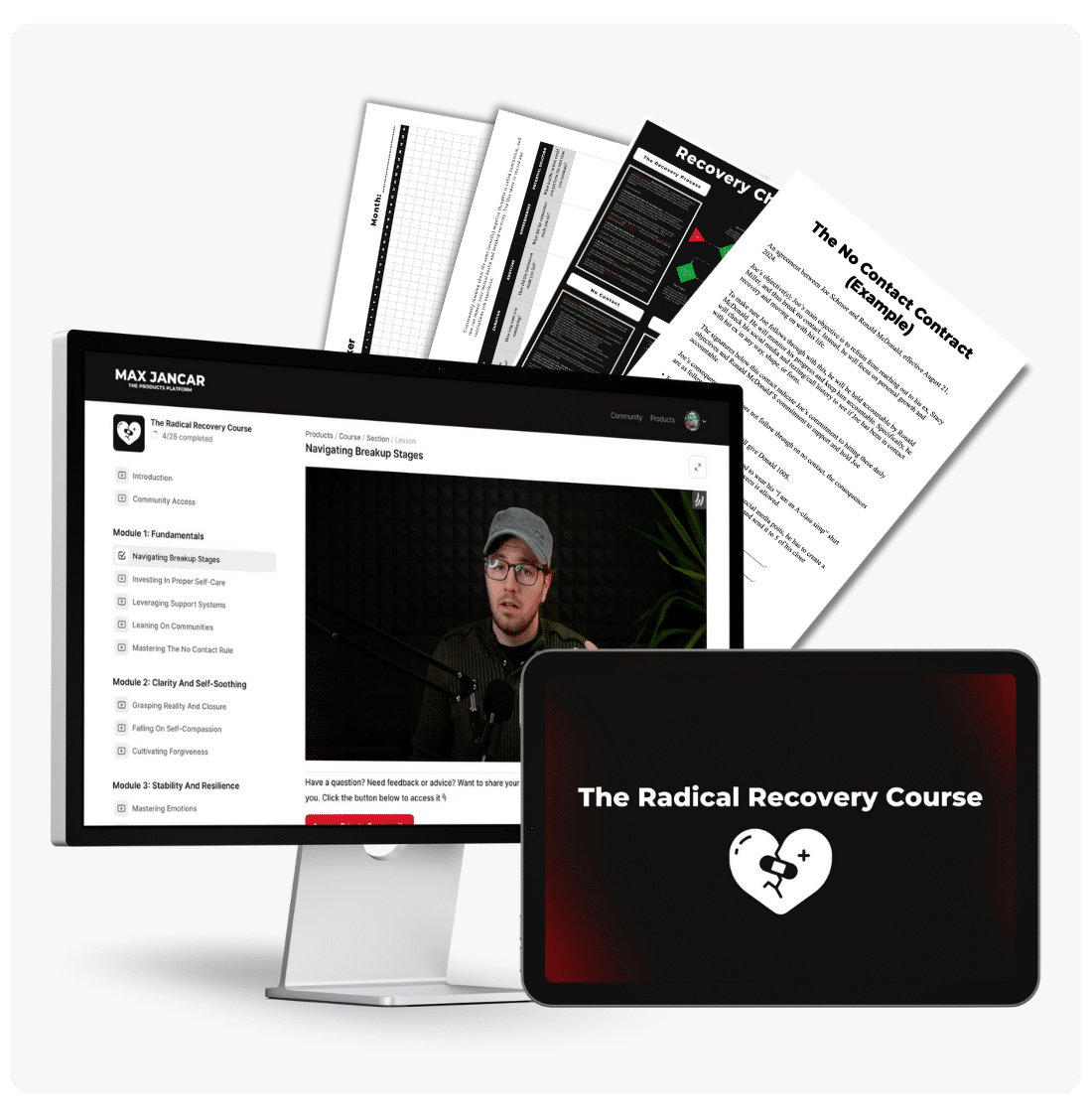Click play to listen to this article.
That one lonely night, I cried out galaxies…
I couldn’t take it anymore. Everything reminded me of her; the crazy trips I took to run away from myself, the women I dated to drown my pain, the night sky above me, identical to the one we made love beneath oh-so-long ago. Everything was her. She was everything. There was no escape.
As the weeks rolled by, more and more things began evoking this gut-twisting memory of her. Soon, I found myself angry, resentful, and irritated by… well, basically everything. Most days, I wanted the sky to finally collapse on me and take me wherever.
As you’d expect, this was quite a lonely and sad period in my life. And while it did last for months — as cheesy as it sounds — storms like this always pass.
Fast forward about two years: I became a new man. Not only did I rid my system of loneliness; I also began to enjoy the solitude. Dare I say, I even began to revel in my solitude. I finally felt like myself again.
You, dear reader, can achieve this same transformation. No, it’s not easy. Nor is it something you’ll achieve any time soon. Yet it is possible — very possible. What does it come down to? In my opinion, the following set of semi-interconnected principles. Here they are.
A guide to breakup recovery based on embracing discomfort, extracting wisdom from dark moments, and healing through evidence-based practices.
Order Your CopyPrinciple #1: Lean On Your Support System
We, as fellow humans, are social animals. We live and thrive in communities, not in isolation. We’re also wired to physically and emotionally rely on other people. Hell, we even extract our unique life purpose from the relationships we cultivate with the things and, most notably, the people around us.
Therefore, a good first step to overcoming loneliness, is rallying your support system and then leaning on it.
A support system is a group of friends, family members, and peers that you trust and feel safe with and who will actively listen to your concerns, give heartfelt advice, and consistent well… support — even when you’re being a dickhead or wallowing in your own self-pity.
As for how to lean on it, it’s pretty simple. Hang out with the people in it more than usual, especially in times of crisis.
Have the urge to reach out to your ex when they told you to stay the fuck away? Call up your buddies instead. Want to get batshit drunk to feel less lonely? Help a peer with a work project instead. Feel like doing a gnarly flip off a bridge? Talk to your mom first.
This cheat sheet lays out 40+ solutions to overcoming a breakup so you can create a new opportunity for love — be that with your ex or someone completely different.
Get The Free Cheat SheetPrinciple #2: Leverage Breakup Recovery Groups
Joining a breakup recovery group to alleviate my loneliness was probably the most challenging thing I’ve done socially. Mainly because I’m a huge introvert and had massive problems with being vulnerable in the past. But I’m glad I forced myself to do it. It helped a lot — not only with my loneliness but also my personal growth at large.
So go and find a breakup recovery group yourself — perhaps multiple! And once you find a group or two that resonate, start participating. The bigger, more participatory, and active the group is, the better.
Look especially for groups that incorporate activities like dancing, hiking, swimming, or gymnastics in addition to discussions. Those are proven to help you feel less alone faster than groups where everyone just sits around doing nothing.
Now I understand that you might not be lucky enough to stumble upon a real-life group of recovering breakup survivors. But don’t worry, there is a workaround: online groups.
Yes, you’ve read that right.
Online groups work just as well as offline ones in terms of helping you deal with post-breakup loneliness. Just note that according to recent studies, when meeting new people there, it’s more therapeutic if you participate in group discussions rather than solely sticking to one-on-one interactions.
Principle #3: Improve Your Social Skills
Naturally, just getting into a recovery group isn’t enough to stop feeling lonely. You also have to, like… talk to the people in it. This is where social skills come in.
Social skills allow us to build deep emotional connections with others — connections that can then gradually evolve into meaningful friendships. And those meaningful friendships help us feel less lonely. Simple as that.
Below are three steps on improving social skills I followed and taught to others. Give them a shot. That said, if one feels to easy, feel free to skip it. And if you’re already socially calibrated, maybe even skip this entire section altogether.
Step 1: glances, smiles and greetings. Start by making eye contact with the random people you encounter, say, on a stroll or when you’re shopping. When it feels comfortable, incorporate a smile into the routine. And when you feel comfortable with even that, add a greeting to the mix. Finally, repeat this routine until you become comfortable with it. Then go to step 2.
Step 2: advice and opinions. This one’s pretty simple. Start asking strangers for advice and opinions on everyday things, like the clothes you wear, the environment you’re in, or the things you’re simply curious about. Life hack: if you’re too shy to do this, start by asking market clerks for advice/opinions. Since it’s their job to answer, you might be more relaxed. In any case, when this step becomes second nature, move on to the last one.
Step 3: small talk. This refers to a shorter conversation about mundane, casual things, like entertainment, the weather, news, or travel. What I essentially want you to do is engage a stranger (or a group of strangers) in small talk. When you feel comfortable, add some jokes, clever remarks, sarcasm, and witty responses into the conversation.
Once you got the basics in order, it’s time to get vulnerable.
Principle #4: Dare To Be Vulnerable
An online course that teaches you how to heal and grow from a breakup so you can create a new possibility for love — with or without your ex.
Get Instant AccessVulnerability refers to your ability to open up, speak your mind, and share things about yourself and your life even when it feels uncomfortable.
There’s no way you’ll ever build deep and meaningful emotional connections with people in your recovery group, or those outside it, without learning how to be vulnerable. Therefore, practice it religiously.
Start small by sharing something personal with a group member you trust, whether it’s a fear, a struggle, or a dream. Notice how it feels to be open and honest, and recognize that vulnerability is not a weakness but a strength.
Then do the same with the strangers or semi-strangers in your recovery group. Open up even if it feels awkward or embarrassing. The right people, your potential or current friends, will stay with you regardless and accept you.
While I won’t dive deeper into vulnerability, since I’ve already written about it at length in this article, I will point out some differences between toxic and healthy kind that people keep mixing up.
Toxic vulnerability is the equivalent of over-expression and is the result of lousy emotional management. For example, going on a 2-hour-long rant about your ex being a toxic bitch and the world being unfair when a friend asks you what you’ve been doing over the weekend.
On the other hand, healthy vulnerability is the equivalent of mature communication and is a result of competent emotional management. For example, expressing grief to your friend and asking for advice without bashing your ex, playing a victim, or continually whining and complaining.
The takeaway? Do healthy vulnerability, avoid toxic vulnerability.
Principle #5: Have The Right Intentions
Many people approach their breakup recovery groups with the wrong intentions. Instead of thinking, “How can I help others?” they think, “How can I get others to help me?”
Don’t get me wrong: there’s nothing bad about wanting advice or a listening ear. However, if that’s your only intention in joining a recovery group, then you’re doing everyone — including yourself — an enormous disservice.
By focusing only on yourself and your wants, you’re missing the opportunity to connect with the other people there. And if you fail to connect with them, you also often fail to overcome some of your loneliness. Therefore, approach your breakup recovery group with a giver’s mindset.
If a member has trouble maintaining no contact with their ex and you don’t, advise them on how to maintain it. If a member has trouble sleeping because they constantly ruminate on their ex but you sleep like a fucking baby at night, give them advice on how achieve the same result. If a member has uncontrollable anger issues and you’ve taken control of yours, share how you’ve done that.
In time, you’ll see that the more you help others, the more they help you. And when that reciprocity starts to kick in, you’ll feel less lonely.
Principle #6: Keep Perspective In Mind
Every dab of pain, every tear of sadness, and every iota of grief fades away in time. This fading effect naturally also applies to loneliness.
Sure, it’s way quicker when you’re proactively working towards overcoming it. But even if you don’t do anything special, it still often withers away on it’s own.
So don’t stress about speeding up this process too much. That said, be careful not to slow it down. This is the trap most people fall into.
They begin stalking their ex, chasing and pursuing them, and begging and pleading with them for another shot. Granted your ex is unreceptive (which is the case for most people), these behaviors only intensify loneliness.
Not only that, they also contribute to unnecessary drama between you and your ex and may reopen additional breakup wounds or lead to totally new ones. So avoid them — avoid these sabotaging behaviors at all costs.
Principle #7: Learn To Enjoy The Solitude
There comes a time when you won’t be reachable by your support system. There comes a time when you won’t be able to fall back on your recovery groups. There comes a time, when it’s only you with yourself.
As unorthodox as it sounds, this can actually be a good thing. Granted you bend your perspective the right way. See, most people fear solitude. They get anxious and worried when thinking about it and obsessively retaliate against it. And as a result, they make everything worse for themselves.
However, there is another way to approach dealing with solitude — find a way to enjoy it. How? By altering the meaning you ascribe to it. Let me unpack this for you…
You could think of solitude as something scary and shitty you should avoid, like a painful source of loneliness. Or you could think about it as an opportunity for personal growth — an enlightening time of reflection, per se. A time in which you can focus on how to not screw up your next relationship or what kind of a partner are you really looking for.
Put another way, you could try and neurotically fend off loneliness. Or you could embrace and learn from it instead.
Adopt the latter perspective. Change how you perceive solitude for the better, and observe how quickly your loneliness loses it’s grip over your ballsack.
(Optional) Top Questions On How To Stop Feeling Lonely After A Breakup
How Long Does Loneliness Last After A Breakup?
I hate to be the bearer of shitty answers, but it depends on the person. Specifically, it depends on a person’s relationship, their overall psychological resilience, and the effectiveness and presence of their support system. If I’d ballpark it, most people feel lonely for 1-3 months post-breakup.
How Do I Accept Being Alone Post-Breakup?
By changing your mind around solitude. Instead of thinking about it as something dangerous or unwanted, think of it as a scary yet necessarily opportunity for self-discovery and growth. It sounds simplistic, but it’s true. Over time, if you stick with this empowering mindset shift, the acceptance of being alone will naturally follow.
What Are Some Signs I Might Need Professional Help To Deal With Loneliness After A Breakup?
You should get professional help after a breakup regardless of how lonely you feel. And no, not from unqualified idiots like breakup bloggers (like me), but actual professionals: therapists, counselors, psychologists, etc. That said, a major sign you need professional help immediately is when you’re experiencing persistent sadness and depression, are having thoughts of self-harm or suicide, are struggling to perform routine tasks, are withdrawing from friends and activities you once enjoyed, or if your feelings of loneliness haven’t improved in years.
Should I Jump Into Another Relationship To Overcome Loneliness After A Breakup?
It depends on how ready you are. If loneliness is the only issue you’re still grappling with, yet it is improving, then jumping into another relationship might not be such a bad idea. However, you can always test this theory by dating a person without committing to them for an extended period. On the other hand, if you’re dealing with a bunch of other insecurities and emotional issues in addition to your loneliness, then getting into a new relationship probably isn’t a good idea. Because you’ll likely sabotage it due to those unresolved insecurities and emotional issues.
Is It Normal To Feel Lonely After A Breakup Even When Surrounded By Friends And Family?
Yes, it’s completely normal to feel lonely after a breakup, even when surrounded by friends and family. The end of a romantic relationship can leave a significant void that isn’t easily filled by familial or platonic relationships. After all, those relationships meet relatively different needs than romantic ones. Put another way, those relationships just aren’t one in the same.
This cheat sheet lays out 40+ solutions to overcoming a breakup so you can create a new opportunity for love — be that with your ex or someone completely different.
Get The Free Cheat SheetRelated Reading
- 3 Surprising Reasons You Can’t Get Over Your Ex August 22, 2024
- Do You Need Therapy After A Breakup And How Does It Work? May 9, 2024
- How To Love Yourself After A Breakup (7 Realistic Activities) November 20, 2021
- Why It Works: Meditation, Journaling, And Therapy July 7, 2024
- How To Get Over Your Ex And Move On For Good February 10, 2023
- How To Forgive Your Ex When You Can’t Forget Them February 12, 2024



